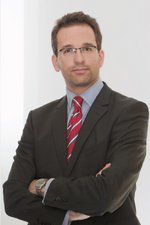
Urban Systems
In the course of the last few years, a broad spectrum of research dealing with issues related to urban systems has developed at the University of Duisburg-Essen (UDE). This concentration of research broadly relating to cities and urbanity was prompted not least by the location of the university itself. The University of Duisburg-Essen is situated at the centre of the third-largest megacity in Europe, and the immediacy of the social, political, economic, cultural and ecological consequences of urbanisation processes in the region have served as a catalyst for research in the field of urban systems.
A network of researchers, scientists and research groups working on an inter- and transdisciplinary basis has gradually grown out of what started out as largely single-discipline research. This network is the core of the UDE's Main Research Area of Urban Systems, which is unparalleled in its breadth and scope in Germany.
Spanning several disciplines, the research platform not only seeks to address issues related to scientific approaches to urban systems (exploring built environments and their technical infrastructures), but also includes the analysis and characterisation of the political, social, cultural, economic and ecological conditions, requirements, problems and consequences of urban life. Only this way can basic principles for strategies for sustainable urban development be established on the many different levels. Six heuristic and dynamic interdisciplinary key areas of research were defined in the course of redirecting the focus of the Main Research Area. They are Health, Environment, Infrastructure, Logistics, Culture, and Society, Education and Social Policy. Alongside these six areas of research, three cross-sectional areas have emerged (Urban Management, Governance, and Urban Planning), whose research questions in particular call for an interdisciplinary approach. The knowledge and insight of (almost) all of the other areas of research in the Main Research Area of Urban Systems converge in these three cross-sectional research areas.
With such a comprehensive approach, the Main Research Area of Urban Systems at the University of Duisburg-Essen stands out among comparable urban studies approaches at other German-speaking universities, which tend to focus either on geography, urban planning, or social sciences.
The proposed goal of the Main Research Area of Urban Systems is to make a significant contribution to exploring the complexity of urban systems through close interdisciplinary cooperation across all university faculties and departments, coupled with cooperation with other academic, scientific, economic, social and political organisations and individuals. By consolidating diverse research activities and cross-listing academic courses in nearly all of the university's departments and faculties, Urban Systems is contributing to closer networking between the faculties, to interaction and "exchange" between diverse academic/scientific cultures, and to a culture of inter- and transdisciplinary cooperation at the University of Duisburg-Essen.
While the University of Duisburg-Essen is striving to become an internationally visible centre of metropolis research, it is also seeking to integrate itself further in the wider Ruhr region. Given its proximity and close connections to the university, the region naturally accounts for part of the research activities; nevertheless, developments in megacities around the globe are imperative for an integrated approach to urban issues and for this reason are also the subject of research.
To summarise, all of the activities in the Main Research Area of Urban Systems aim to:
identify innovative and interdisciplinary research questions according to the bottom-up principle,
comprehensively understand and investigate problems facing metropolises,
develop sustainable and innovative concepts for urban systems,
optimally link the disciplines involved and educate, train and support young researchers and scientists in the Main Research Area,
establish a working environment conducive to productivity and excellence for all involved.
This work and the close connections to organisations and individuals in the region are intended to help establish and shape the Ruhr metropolis as a key location for science and research, with the UDE as a centre of expertise for urban systems at its heart.

